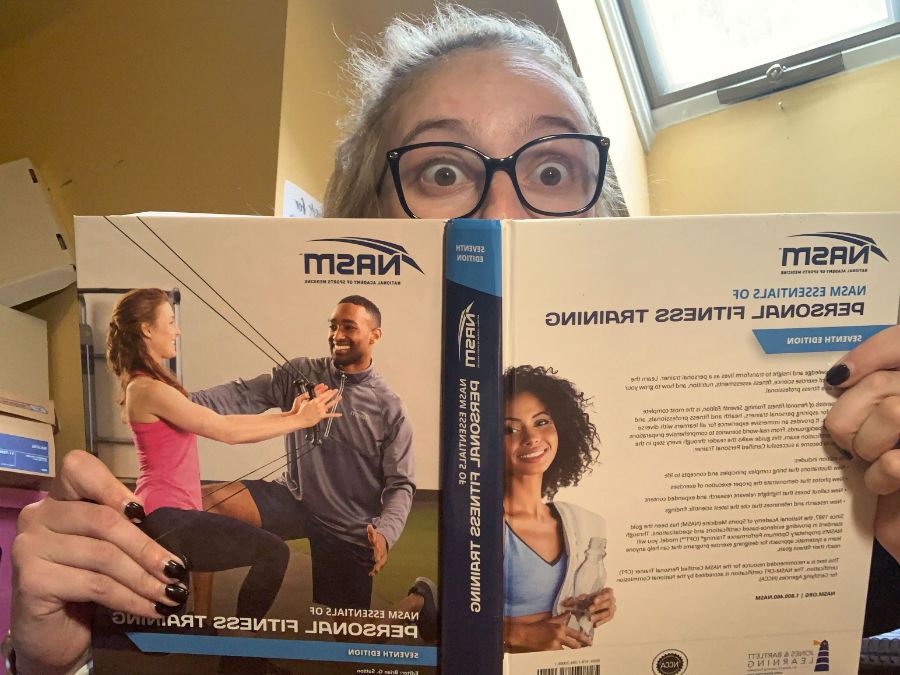We test and review fitness products based on an independent, multi-point methodology. If you use our links to purchase something, we may earn a commission. Read our disclosures.
If you’re dreaming of quitting your day job for a career in the fitness industry, you may be wondering what is CPT certification? You’re in the right place because I’m a certified personal trainer (CPT) and I plan to answer that question. I’ll also give you a glimpse of how a certification program can help prepare you to work with clients at commercial gyms, health clubs, and boutique fitness studios.
I’ll also help you determine what is a personal trainer and provide a brief outline of a CPT’s scope of practice. Let’s dive in.
What Is a CPT Certification?
A CPT certification shows a potential employer that you’re a fitness professional with a basic understanding of anatomy, exercise technique, and the ability to make appropriate exercise selections. In most cases, a certification also lets an employer know you are CPR and AED trained and can respond in emergency situations.
RELATED: Squat Anatomy
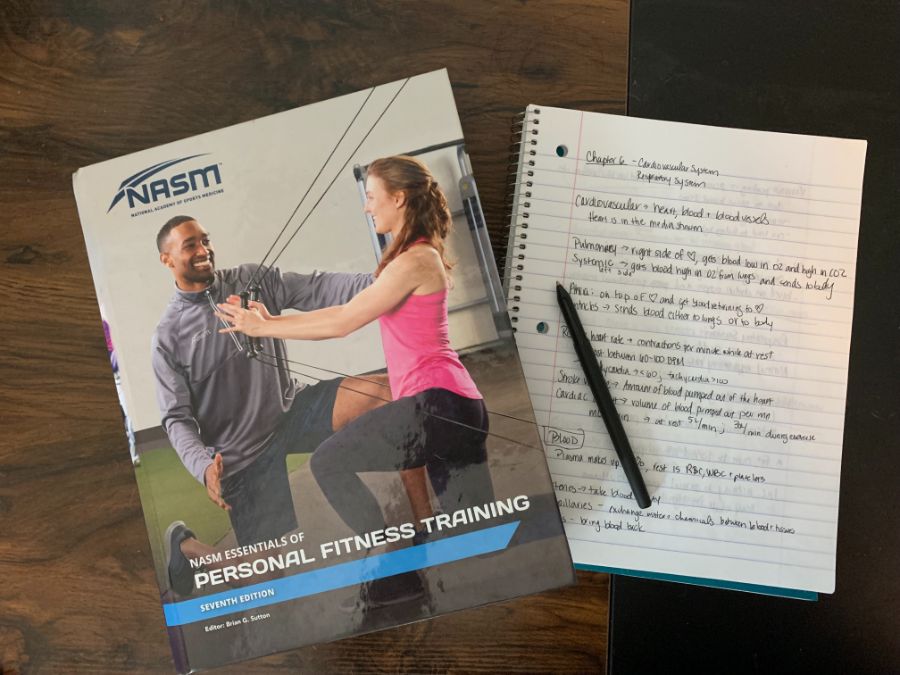
Where things can get a little tricky is the fact that several different educational institutions offer certification programs. When you’re comparing CPT programs, keep in mind that you’ll want to find a program accredited by either the NCCA (National Commission For Certifying Agencies) or the NBFE (National Board of Fitness Examiners). Choosing a program with accreditation will allow you to learn important information that is not only relevant but reviewed by a third party.
The typical certified personal trainer program will include a textbook, coursework, and exam questions on the following topics:
- Anatomy and physiology
- Kinesiology and biomechanics
- Personal trainer’s scope of practice
- Health assessments and physical readiness
- Program design and exercise selection
- Nutrition science basics
- Exercise physiology and behavior change
- Training special populations
- Basic first aid
- Business of personal training and sales
What Is a Personal Trainer?
A personal trainer is more than a certification course. Yes, it’s important to have a certification and baseline knowledge of exercise science, but interpersonal skills and the ability to approach a client’s needs with empathy is also crucial to a successful career. A career in personal training puts you in a rather intimate position to help people reach their fitness goals.
Many folks have everyday goals like the ability to sit on the floor and play with their grandchildren or the balance required to carry groceries from the car into the house. Other clients may come to personal trainers with sport-based goals like entering a strongman competition or wanting a half-marathon training plan. Both should be treated with respect.
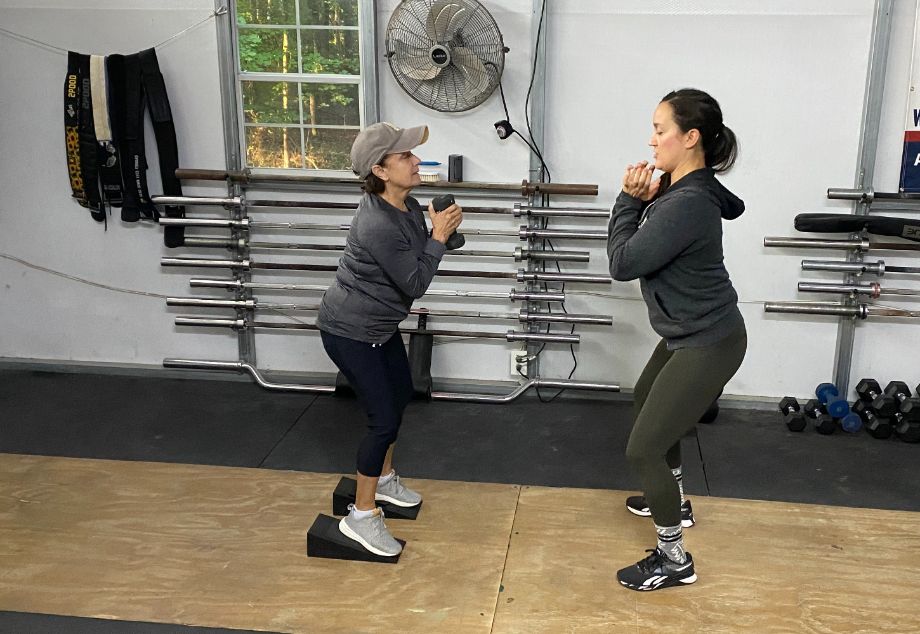
No matter the age or ability of a client, the personal trainer’s job is to walk through a health and fitness assessment to evaluate physical readiness and then to develop an exercise program that will safely and effectively work toward their fitness goals.
RELATED: Athletic Trainer vs Personal Trainer
Personal trainers then use interpersonal skills to motivate clients to perform fitness programs and make appropriate progressions. Personal trainers are also tasked with educating clients about general health and fitness principles to help clients become informed consumers.
Although nutrition is closely tied to physical fitness, a CPT’s scope of practice has limitations. Personal trainers should not make specific recommendations on diets, nutritional supplements, or macronutrients. However, trainers can inform clients on general nutrition information without providing specific advice.
RELATED: NASM Certified Nutrition Course Review
How to Earn a Personal Trainer Certification
Now that you know what a CPT certification is and have a general idea of what a personal trainer does, let’s go over the prerequisites to becoming a personal trainer.
To sit for a CPT final exam, you do not need a bachelor’s degree in exercise science. It’s actually quite simple to get started. To register for a personal trainer certification program you’ll be required to be at least 18 years of age, have a high school diploma or GED, and have a CPR/AED certification.
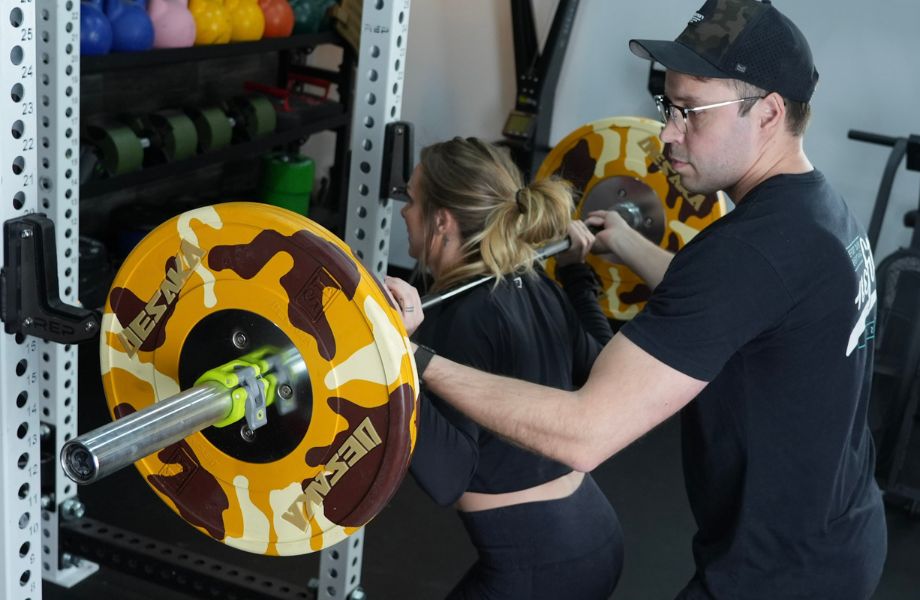
If you meet those requirements, you’ll be able to sign up for an accredited program to study and prepare for the final exam. The best personal training certifications offer self-paced study packages and online courses.
If you’re someone with previous training knowledge or on-the-job training, some educational institutions allow you to sign up for the exam without buying the entire study package. However, this is not recommended for folks new to the fitness industry.
RELATED: CrossFit Certification Review
Options for Personal Training Certifications
We know there are a ton of options to get certified and it can be pretty confusing. Popular programs include the at-home non-proctored exam with ISSA and the NASM certification, which offers in-person and online test-taking options.
But there are a handful of programs to choose from and if you want to help people lead healthier lives, some of our top recommendations for personal training programs are below:
- ACE-CPT (American Council on Exercise)
- ACSM-CPT (American College of Sports Medicine)
- ISSA-CPT (International Sports Sciences Association)
- NASM-CPT (National Academy of Sports Medicine)
- NESTA-PFT (National Exercise and Sports Trainers Association)
- NFPT-CPT (National Federation of Professional Trainers)
- NSCA-CPT (National Strength and Conditioning Association)
- NCSF-CPT (National Council on Strength and Fitness)
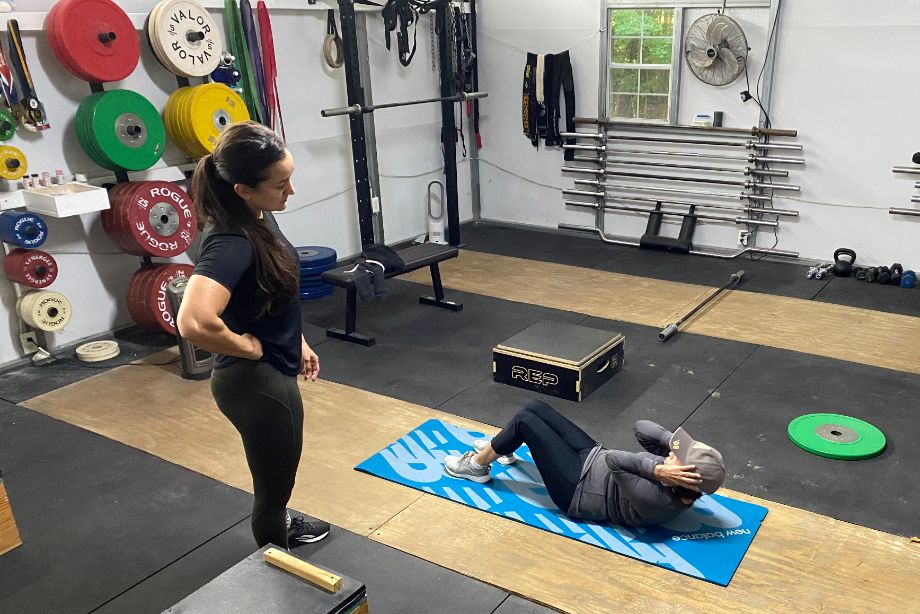
Personal Trainer Certification Exam
When it comes to your final exam, every organization has its own set of rules and methods for test taking. Some offer online final exams and some certification exams can only be taken in-person at a proctored testing center.
To pass your final exam, you’ll need to utilize the study material that comes with your coursework. This usually includes a textbook, study guide, and practice tests and quizzes. Most institutions require you to take the final exam within a certain period of time after you register. In our experience, it ranges from three months up to one year depending on which program you choose.

Although less common, there are some institutions that offer an a la carte menu of study materials. In cases like this, the textbook, study guide, and practice exams can all be purchased separately.
Most of the certifications our team has experience with and reviewed have extensive tests with 100 (or more) multiple choice questions. Some institutions like ISSA even offer a retest option and a chance to review your answers.
RELATED: Best Strength and Conditioning Certifications
Continuing Education Expectations
CPT certifications need to be renewed every two years (with the exception of the NESTA certification, which can be done every four years). The renewal, or recertification process consists of continuing education.
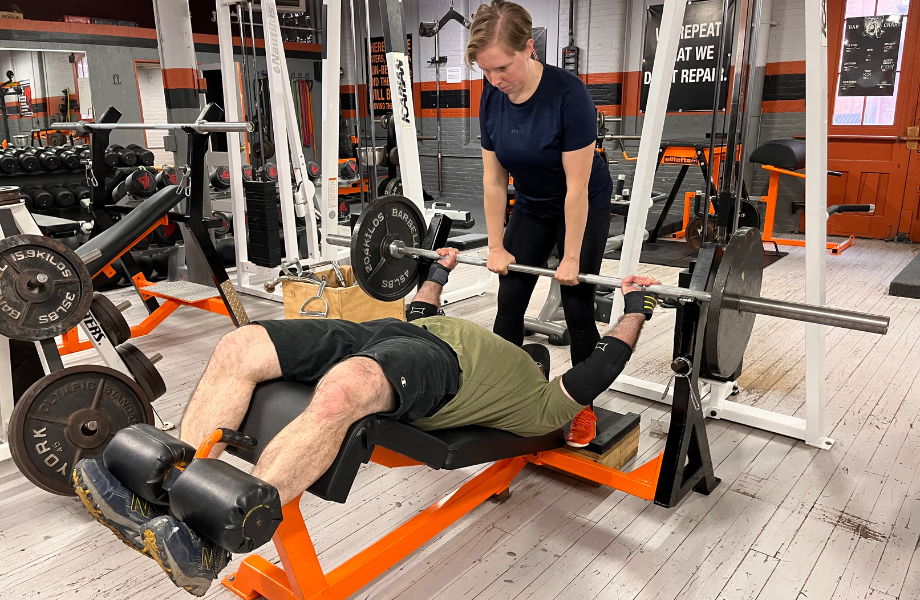
All educational institutions have different requirements and set different standards on how many hours of continuing education you need for each recertification cycle. Continuing education may also be defined differently for each program. Most institutions allow students and fitness professionals to utilize programs from other organizations as long as it’s an NCCA-accredited certification.
Continuing education programs nudge personal trainers to keep skills sharp and take part in specialization programs like strength and conditioning specialist, senior group fitness, or corrective exercise.
What Is CPT Certification: Final Thoughts
A CPT certification is an excellent starting point for a career as a personal trainer. It provides a baseline education on anatomy, physiology, exercise selection, and training program design. Having a CPT credential may also improve your likelihood of landing a job at commercial gyms and health clubs.
What Is CPT Certification: FAQs
What does CPT certification stand for?
The CPT certification signifies a certified personal trainer through an accredited program.
How do I get certified in CPT?
Before you decide to get certified as a personal trainer, make sure you meet the requirements of being at least 18 years of age, have a high school diploma (or equivalent), and have a CPR/AED certification. To get certified, you’ll have to research and select an educational institution to get certified through. Once you’ve made your choice, it’s time to study and prepare for the final exam.
Our top choice for best personal training certifications include:
-Best Personal Training Certification Overall: NASM
–Best Personal Training Certification for Student Support: ISSA
–Best Personal Training Certification for Future Specialization: ACE
–Best Value Personal Training Certification: NCSF
–Best Personal Training Certification to Work with Athletes: NSCA
–Best Affordable Personal Training Certification: NFPT
–Best for Working with Special Populations or in Clinical Settings: ACSM
–Best with Long Recertification Term: NESTA
Is CPT certification hard?
Without prior training experience or personal knowledge of strength and conditioning, a CPT exam and coursework will present a great challenge. That said, the coursework you sign up for should provide you with all the materials necessary to successfully pass the final exam.
Further reading

We tasted dozens of protein powders to find the best whey protein on the market. Read more

Our certified fitness experts round up the best online workout programs for building strength, increasing endurance, and reaching all of your fitness goals. Read more

Worried about your lack of working out progress? Here are 5 signs to watch for from our fitness experts at GGR. Read more

Have you heard the term "barbell knurling" and wondered what exactly was being discussed? Olympic Barbell Knurl is something seen in nearly every home gym in the world and although it can seem like a small feature, it's actually quite important and highly debated. In this review, I want to tell you what it is, why it matters, and examples of both good and bad knurling patterns. Read more

